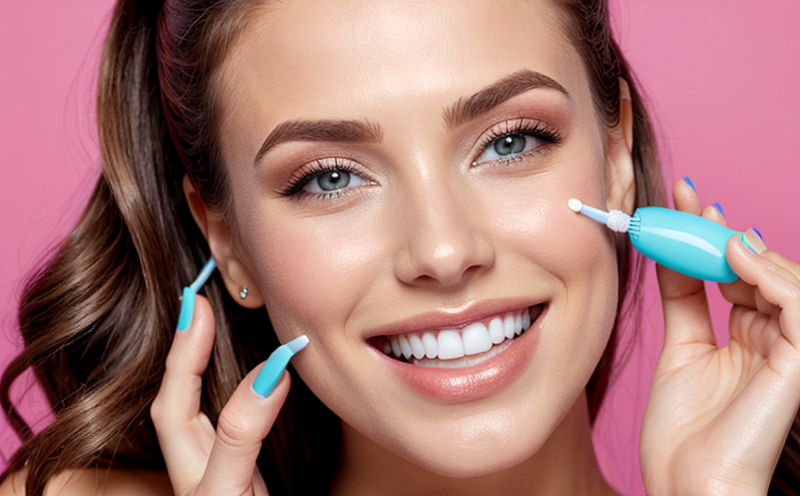Clinical Testing of Probiotic Cosmetic Mouthwashes
The clinical testing of probiotic cosmetic mouthwashes is an essential step in ensuring that these products meet regulatory standards and deliver the intended benefits to consumers. Probiotic mouthwashes are designed to promote oral health by introducing beneficial bacteria into the oral environment, which can help combat harmful microorganisms and improve overall hygiene.
The testing process involves a series of rigorous experiments aimed at evaluating the efficacy, safety, and stability of these products. The first step in this process is selecting an appropriate formulation that aligns with the product's intended use. This formulation should be designed to ensure that the probiotics are stable during storage and capable of surviving the acidic environment of the mouth.
The next phase involves conducting preclinical tests, which include determining the viability of the probiotic strains under various conditions. These tests help establish the optimal conditions for storing and using the product. Once formulated, the mouthwash must undergo clinical trials to assess its effectiveness in promoting oral health. This typically involves a controlled study where participants use the mouthwash over an extended period.
During these studies, researchers monitor changes in the microbial composition of the participant's mouth, looking for improvements in beneficial bacteria and reductions in harmful pathogens. Additionally, subjective assessments such as reports from users about their perceived improvements in oral health are collected. These trials provide valuable data that helps refine the product formulation further.
The testing process also includes evaluating the product’s safety profile through toxicity studies. This ensures that the mouthwash does not cause adverse reactions when used according to the recommended guidelines. Compliance with international standards like ISO 22194 and ASTM E1806 is crucial, as these provide benchmarks for what constitutes safe and effective cosmetic products.
Another critical aspect of clinical testing is stability assessment. This involves storing samples under different conditions (temperature, humidity) to observe how the probiotic activity changes over time. Stability studies are important because they ensure that the product remains effective even after prolonged shelf life.
In summary, the clinical testing of probiotic cosmetic mouthwashes is a multi-faceted process that combines rigorous scientific research with practical application considerations. By following this comprehensive approach, manufacturers can produce safe and effective products that meet both regulatory requirements and consumer expectations.
Eurolab Advantages
At Eurolab, we pride ourselves on offering top-tier services tailored specifically for the cosmetic industry. Our expertise in probiotic cosmetic mouthwashes is unmatched, thanks to our team of highly qualified professionals who stay abreast of the latest developments in this rapidly evolving field.
We offer a range of services that go beyond standard testing protocols. For instance, we can conduct customized studies designed specifically for your product line. Our state-of-the-art facilities equipped with advanced instrumentation ensure precise and accurate results every time. Furthermore, our extensive network allows us to provide unparalleled support across all stages of development—from formulation to final approval.
Our commitment to excellence extends beyond just technical capabilities; it includes ensuring that each client receives personalized attention and guidance throughout the entire process. Whether you're a startup or an established brand looking for innovative solutions, Eurolab stands ready to help take your products to new heights.
International Acceptance and Recognition
The international community places high importance on the safety and efficacy of cosmetic products, including probiotic mouthwashes. Regulatory bodies around the world adhere strictly to guidelines set forth by organizations such as the International Organization for Standardization (ISO).
In Europe, the Cosmetics Regulation (EC) No 1223/2009 governs the manufacture and sale of cosmetics within EU member states. It mandates that all products must comply with stringent safety criteria before being placed on the market. Similarly, countries like Japan have their own regulations which emphasize thoroughness in ensuring public health protection.
One key aspect highlighted by these standards is the need for robust scientific evidence supporting claims made about a product's benefits. For probiotic mouthwashes, this means demonstrating effectiveness through well-controlled clinical trials and sound laboratory analyses. Compliance with such stringent measures not only enhances consumer trust but also facilitates smoother market entry into various regions.
Use Cases and Application Examples
The use cases for probiotic cosmetic mouthwashes are diverse, reflecting their potential to address a wide array of oral health concerns. One prominent application is in preventive care where regular use can help maintain a balanced microbial environment within the mouth.
Incorporating these products into daily routines may reduce the incidence of common dental issues such as plaque buildup and bad breath. Another example lies in therapeutic applications aimed at treating specific conditions like gingivitis or halitosis more effectively than traditional methods alone might achieve.
Moreover, there are unique opportunities for leveraging probiotics within specialized formulations targeting niche markets, including those focused on enhancing breath freshness after meals or addressing sensitive teeth symptoms. These targeted approaches highlight the versatility of integrating probiotic technologies into cosmetic products.





